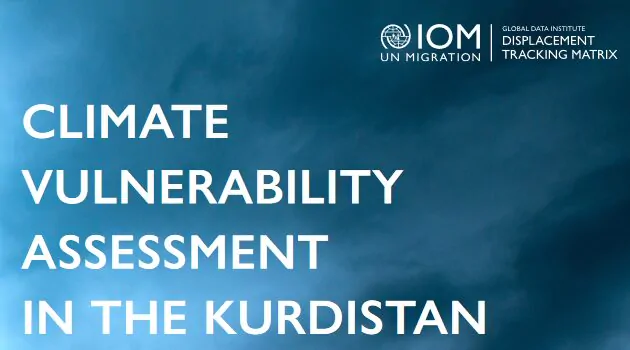The International Organization for Migration (IOM) has issued a new 18-page report titled, ‘Climate Vulnerability Assessment in the Kurdistan Region of Iraq‘.
The report featured various focuses:
Climate change and environmental degradation are presenting Iraq, including the Kurdistan Region of Iraq (KRI), with a number of challenges, including rising temperatures, shifting patterns of rainfall, severe droughts, a lack of water, and frequent sand and dust storms.
Water management policies, faulty or inefficient water infrastructure, population growth, rising water demand, and resource-intensive irrigation practices all exacerbate these issues.
There is an absence of committed information and examination explicitly for the KRI, notwithstanding its particular environment, geology, and practices contrasted with focal and southern Iraq.
The KRI’s reliance on rain-fed agriculture makes it susceptible to climate change-related shifts in rainfall patterns, putting the livelihoods of farmers, livestock farmers, and fishermen in jeopardy.
Rainfall reduction may reduce agricultural yields and herd sizes, leading to financial losses and the abandonment of some families’ livelihoods.
To address this data hole and backing information driven programming, the Global Association for Movement’s (IOM) Uprooting Following Framework (DTM) in Iraq directed a quick, multi-sectoral evaluation across 804 areas in 3 governorates, 20 locale, and 71 sub-regions in KRI.
The challenges of displacement, environmental hazards, irrigation water supply, livelihoods, coping mechanisms, and tensions and conflicts over natural resources were all covered in the assessment.
Click here to download the full report.





